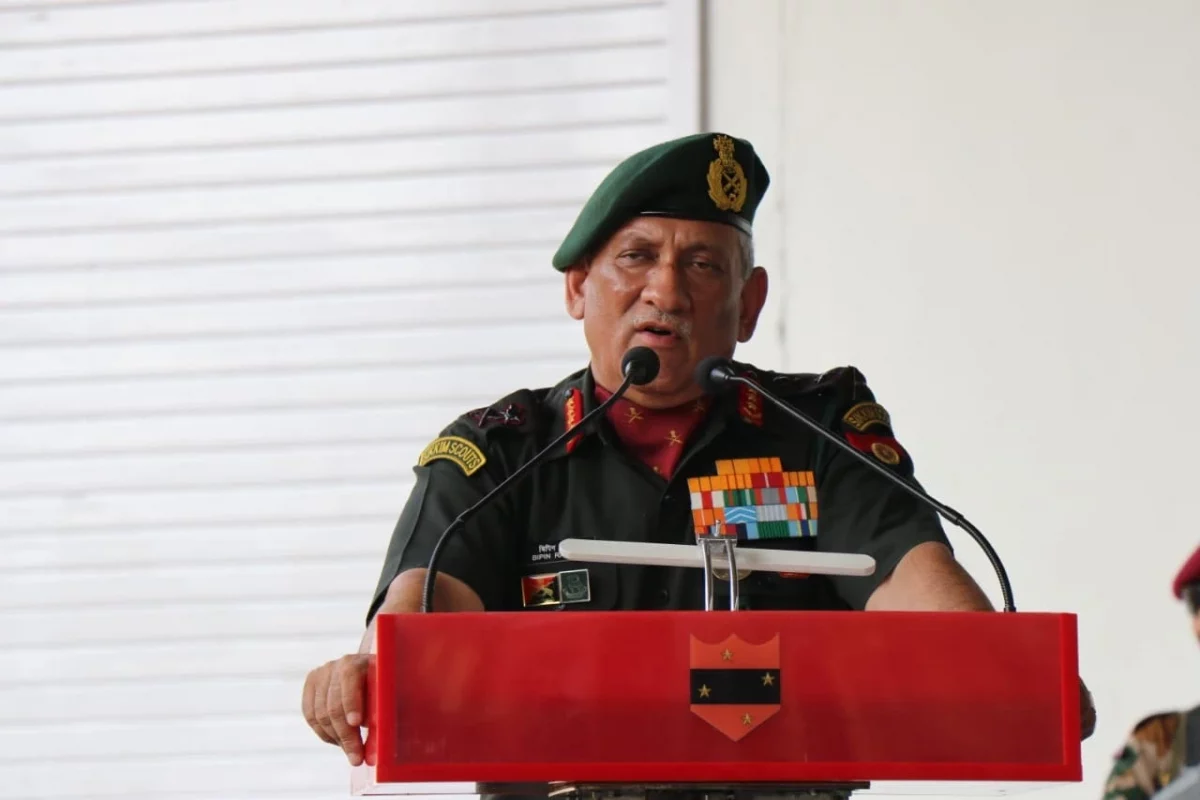The passing away of Gen. Bipin Rawat in a helicopter crash on Wednesday is a massive blow to the transition of India’s military into a fighting force that can fight win battles on many fronts simultaneously.
Symbolically, Gen. Rawat was part of a red-team led by Prime Minister Narendra Modi, which is anchoring the rise of a secure and self-confident India.
Gen. Rawat, India’s first Chief of Defence Staff (CDS), had been handpicked by the Modi administration to drive the formation of theatre commands. These were to be formed by pooling in the assets of the army, the Indian Air Force (IAF) and the Navy to deliver a joint tri-service punch to destroy or degrade designated targets.
General Rawat, leading from the front, had declared that the ambitious task of forming theatre commands in three years. Consequently, he emerged as an icon for jointness in the armed forces, and a one-man army that firmly rejected the prevailing culture of working in silos.

The General was also the assertive symbol of a new India. He steered the cross-border strike in Myanmar against rebels—an event that triggered the use of surgical strikes as a potent deterrent following the Uri attack. No armchair thinker, Gen. Rawat was the Chief of Army staff when the Indian armed forces stared down a belligerent China in Doklam in 2017, after a 73-day standoff. He was also known for asserting that India was prepared for a fighting two-and-a-half front war, taking on both China and Pakistan, without foregoing a reserve capacity to tackle an uprising in Kashmir, in an unlikely but extreme scenario.
Also Read: What you need to know about the Mi-17V-5 helicopter that crashed with General Bipin Rawat on board
Last month Gen. Rawat warned that China has become India’s biggest security threat and said troops along the Line of Actual Control (LAC) will be there for now.
At an event organised by a media house , General Rawat said, “India is prepared for any misadventure along the border and in the sea”.

Gen. Rawat’s assessment about China was not pulled out of thin air. The May 2020 transgressions in Eastern Ladakh show that PLA wanted to impose a Maoist-era 1959 line to define the LAC. China also continues to eye Tawang in Arunachal Pradesh. Since the 2008 Beijing Olympics, China has been upgrading its military infrastructure in Tibet and Xinjiang, posing a direct threat to India.
A strong advocate of indigenisation, Gen. Rawat was engaged in steering the Atmanirbhar Bharat drive in the defence industry, by steering the Defence Acquisition Council.
In his media interactions, Rawat had declared that The Air Defence Command, with hubs in Mumbai, Guwahati and Port Blair, combining aviation hardware drawn from the three services—Army, Navy and the Air Force–would be first to kick off as part of the formation of the theatre command systems.

Two theatre commands—the Northern Theatre Command and the Eastern Theatre Command – were expected to be formed facing China. Another two tri-service commands, including the western theatre command, could be deployed along the border with Pakistan. Analysts say that the chances of a two-front war with China and Pakistan are remote, but Indian military planners are looking at all possible contingencies.
Gen. Rawat was an advocate of the formation of a Peninsula Command, which would be formed to counter threats along the maritime borders. The Navy would have a larger role to cover the broader Indian Ocean Region (IOR) domain, starting from East Africa, the Malacca Straits and Australia.
The tri-service Andaman and Nicobar Command has already been in place since 2001, with primary focus on the IOR. The Strategic Forces Command, another tri-service institution, is in operational command of nuclear weapons.
Also Read: Helicopter with Chief of Defence Staff General Bipin Rawat, 13 others on board crashes in Tamil Nadu




















